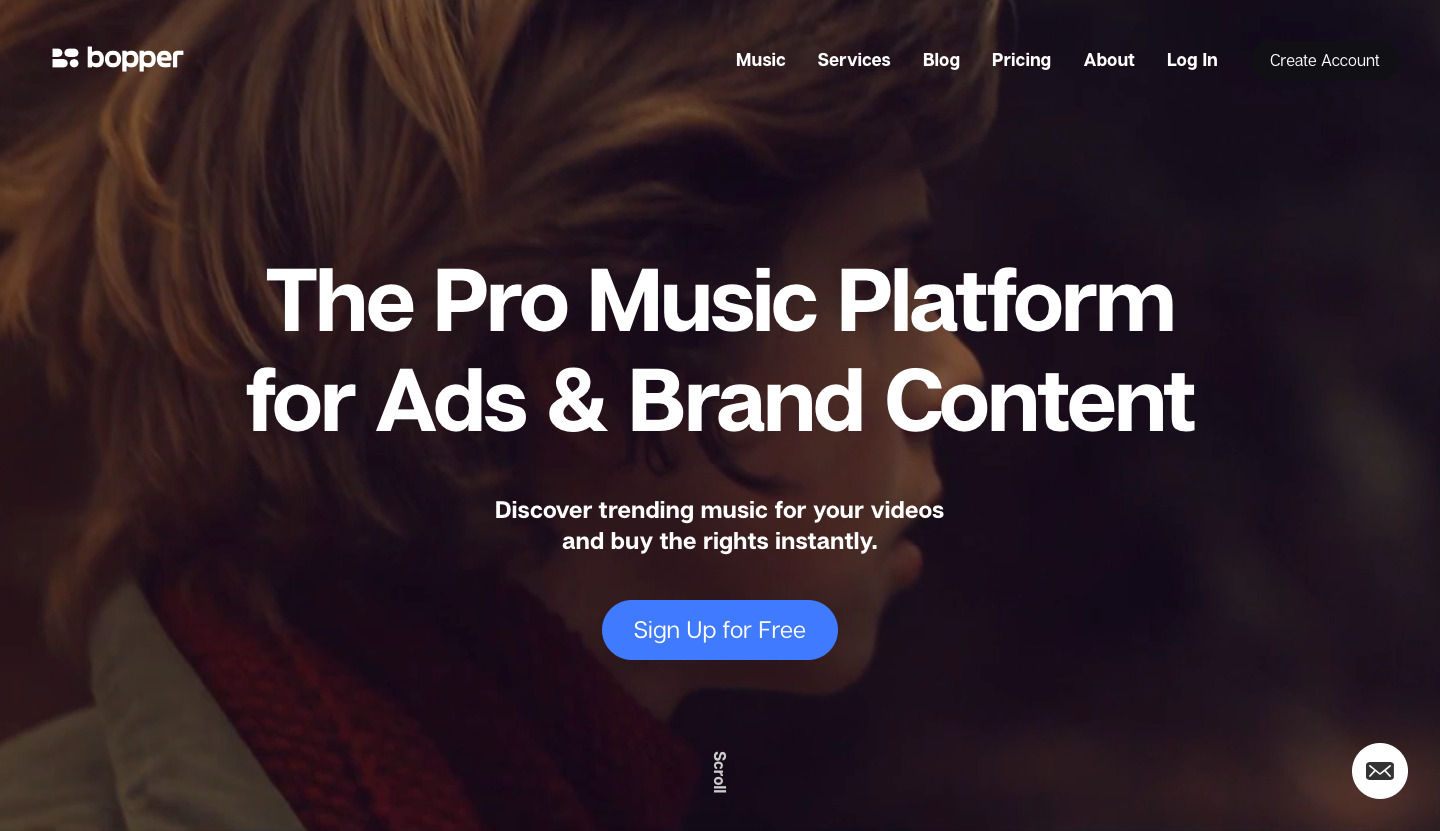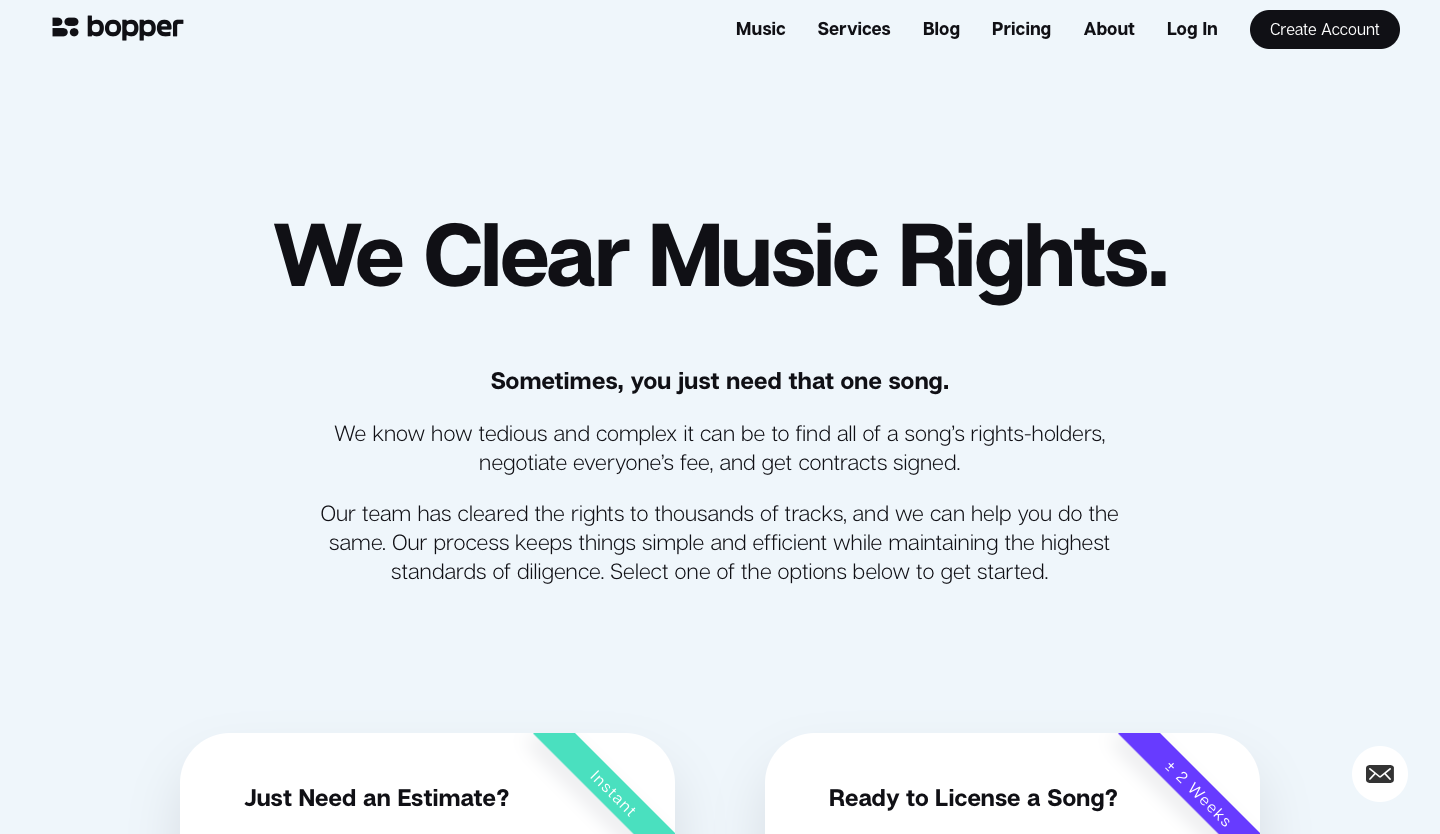Founded in 2013, Bopper (FKA Apollo Music Store) is the only music platform built specifically for the ad industry. With a 100% pre-cleared library of commercial music and an intelligent pricing algorithm, Bopper takes the pain out of finding and licensing music for brand content.
We recently caught up with Phil Messier, co-founder and VP Product and Partnerships, to learn more about the platform, the value of design-based thinking, coping during a pandemic, and more.
Can you tell us what inspired you to start Bopper?
Bopper came as a response to changes in the ad industry, which was, in itself, a response to changes in the media landscape. As new digital media options exploded in the 2010s, everyone had to produce more content, and the “we do everything custom” model was more and more difficult to sustain every year. We gave a lot of thought about taking what was right in the music house model, mostly the insane quality of the music we delivered, and packaging it in something even faster and more cost-effective. That journey ultimately led myself and Greg Lozoff to create Bopper and brings us to where we are today.
What service does Bopper offer and to whom?
Our core purpose is to find and clear amazing music for brand content producers. We don’t really care where it’s from, as long as it’s the best fit for the project. Sometimes the best fit comes from artists or labels with whom we already have an ongoing relationship, and sometimes it comes from an artist we’ve never worked with before. Either way, I personally take great pride in matching brand content producers with the best possible track for any budget, whether that’s $300 or $300,000. Sourcing music can get ridiculously confusing, and our goal is to take all the confusion out of the process for our clients through our self-serve platform and done-for-you music searches. We offer these services to anyone in the ad industry, both agencies and content producers on the brand side.
Sourcing music can get ridiculously confusing, and our goal is to take all the confusion out of the process for our clients through our self-serve platform and done-for-you music searches.
As an advocate of creative, design-based thinking, how have you applied this to building your business and your response to Covid-19?
I advocate for design-based solutions because I genuinely believe they make the world a better place, and I do not say this lightly. One of the many ways this applies to Bopper is that design-thinking is a potent tool against choice anxiety, which I find is a real plight in our digital lives. Good design ensures you avoid this detestable feeling where you feel incompetent or exhausted just because you have too much to choose. The textbook concept of the design-thinking process starts with “empathizing.” I find this to be really powerful. It’s a safeguard that reminds you of who you are working for, i.e., humans who will use the device or process instead of some self-referencing notion of what’s “good.”
If there was ever a time to put your money into the indie music ecosystem, it’s now.
Our response to COVID is evolving, but it’s grounded in that, i.e., we’re trying to get a read of our stakeholders’ situation and adapt. We initially lifted our commission fees with artists because they were hit the hardest and immediately. This is not over, and it’s not just the artist, because even though they wind up being the face of this, it’s the whole music performance industry that’s in limbo. We try to bring this up with our clients. If there was ever a time to put your money into the indie music ecosystem, it’s now.
We also have a Hope for Hard Times Playlist of tracks available for license that wound up being really successful.
You’ve handled some very impressive M&As, cleared big name rights for Bopper and worked with some incredible clients. What’s the best negotiation advice you’ve received that has helped you get the best deal for everyone involved?
This goes back to design-based thinking: empathy! Understand your counterpart as much as possible, and make sure you have a clear idea of their needs and motivations. To get really nerdy about it, try to understand your counterpart’s “BATNA,” which stands for ‘Best Alternative To a Negotiated Agreement.’ To put it differently, this is the route your counterpart will take if negotiations fall through. Without understanding this, you risk falling away from productive negotiations and into pointless arguing. I learned this concept from workshops I did with Pablo Restrepo, who came up with the Negotiation by Design method.
How have the creative industries’ attitudes to pre-cleared licensing platforms changed over the past few years?
These attitudes still vary along generational lines, to an extent. Younger folks are totally converted to the pre-cleared platforms, and wouldn’t know how to work without them. For Gen Xers like me, it’s easy to hang onto old habits of “calling the music guy” when we need music. When it comes to custom music, I still believe this is the way to go. But for licensed music, I think platforms are already more efficient than any individual could be by themselves. We have data, algorithms, recommendation engines, and a global network of carefully selected partners all working to help us put the right song in front of our clients for licensing. These aren’t just buzzwords – they make a huge difference in our ability to help clients find the right track, and they make it really difficult for the “music guy” to compete with us. Soon, I think even the most hardened, old-school industry vets will catch on to the promise of music licensing platforms, and start to move in that direction.
Soon, I think even the most hardened, old-school industry vets will catch on to the promise of music licensing platforms, and start to move in that direction.
Where have pre-cleared music licensing platforms gone wrong in the past? What has Bopper been able to learn from past mistakes?
This one’s easy: quantity. Too much music is not good, it’s terrible – and especially if the music is just “meh.” A lot of music libraries were built using the stock photography playbook, as if someone sat down and said “Let’s build Getty Images, but for music.” The problem with that analogy is that you can browse 200 postage stamp-sized thumbnails of the Brooklyn Bridge in one glance, and quickly narrow down your selection… but there is no equivalent to “browsing” music. You have to actually listen, and this is where the stock photography playbook fails. Nobody has time to listen to 200 tracks. At Bopper, we try every day to strike the perfect chord of variety and curation – enough options to pick from for any given search, but not so many that you end up sitting with your headphones on all day, just for one project.
What trends do you see emerging in the new normal across entertainment and media?
I’ve attended a few virtual music conferences so far, and I must say, I did not miss the drama of boarding a plane, flying to a different city, and investing an entire day sitting in every session. Virtual conferences make it easy to come in and out freely, skip sessions, and still get the same value. The content is still top-notch virtually, and the attendees were all still networking pretty intensely. While there is something lost not being face to face with your industry peers, it’s not all bad. I would probably attend more of these things if they were all available remotely.
Where do you see the biggest opportunities for rights holders to earn more revenue from their catalog over the next 12 months?
I’m totally biased here, but I believe pre-clearing your catalog for sync at fair prices is the way to go. This is the crux of what we do at Bopper – our platform helps our clients achieve previously-impossible levels of efficiency, so they’re able to be more flexible with pricing. Our clients save money by saving time, and our artists / rights holders make more money in the process.
I believe pre-clearing your catalog for sync at fair prices is the way to go. This is the crux of what we do at Bopper – our platform helps our clients achieve previously-impossible levels of efficiency, so they’re able to be more flexible with pricing.
If you could pick any artist or catalog that you don’t have on your platform, who/what would it be and why?
Ah, I love this question. I love Lullatone, and I wish they would come back to us. We represented them when we were just starting out, but we weren’t doing much volume at the time. I love the artistry in their music. It’s ridiculously good for sync, and it has great depth and craftsmanship. I’m a big sucker for those things. Shawn & Yoshimi, are you listening?
Find out more at www.boppermusic.com


